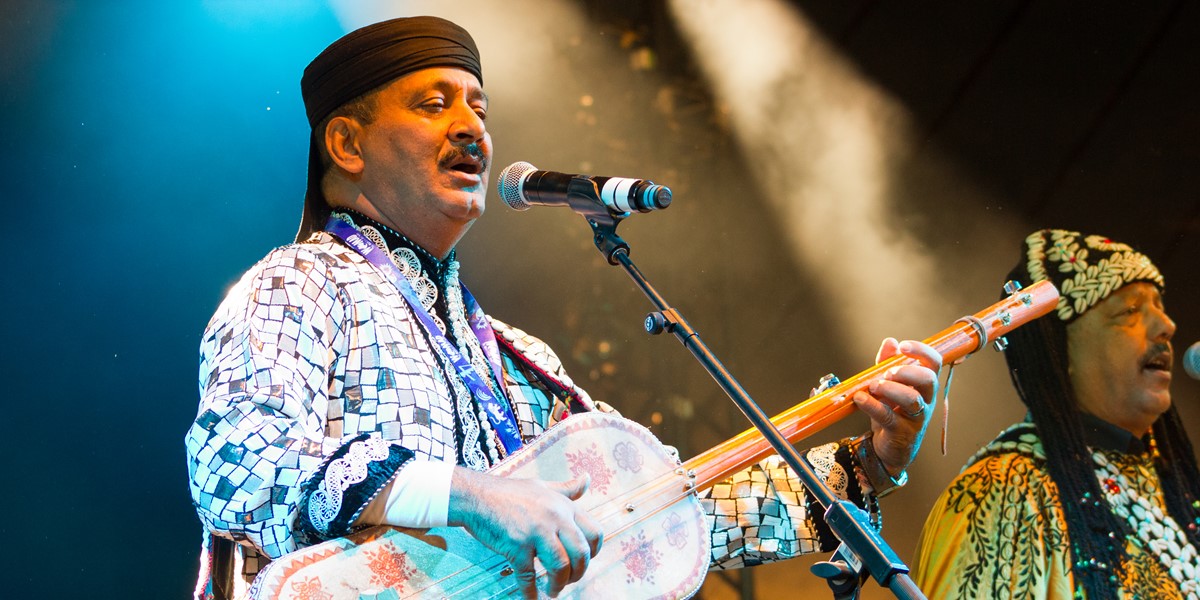Friday, March 19, 2021
On God’s Mission | Hamid El Kasri
The Moroccan bass lute player speaks about his homemade version of the instrument synonymous with Gnawa music’s spiritual heart

©Tom Askew-Miller

Register now to continue reading

Thanks for visiting the Songlines website, your guide to an extraordinary world of music and culture. Sign up for a free account now to enjoy:
- Free access to 2 subscriber-only articles and album reviews every month
- Unlimited access to our news and awards pages
- Our regular email newsletters

